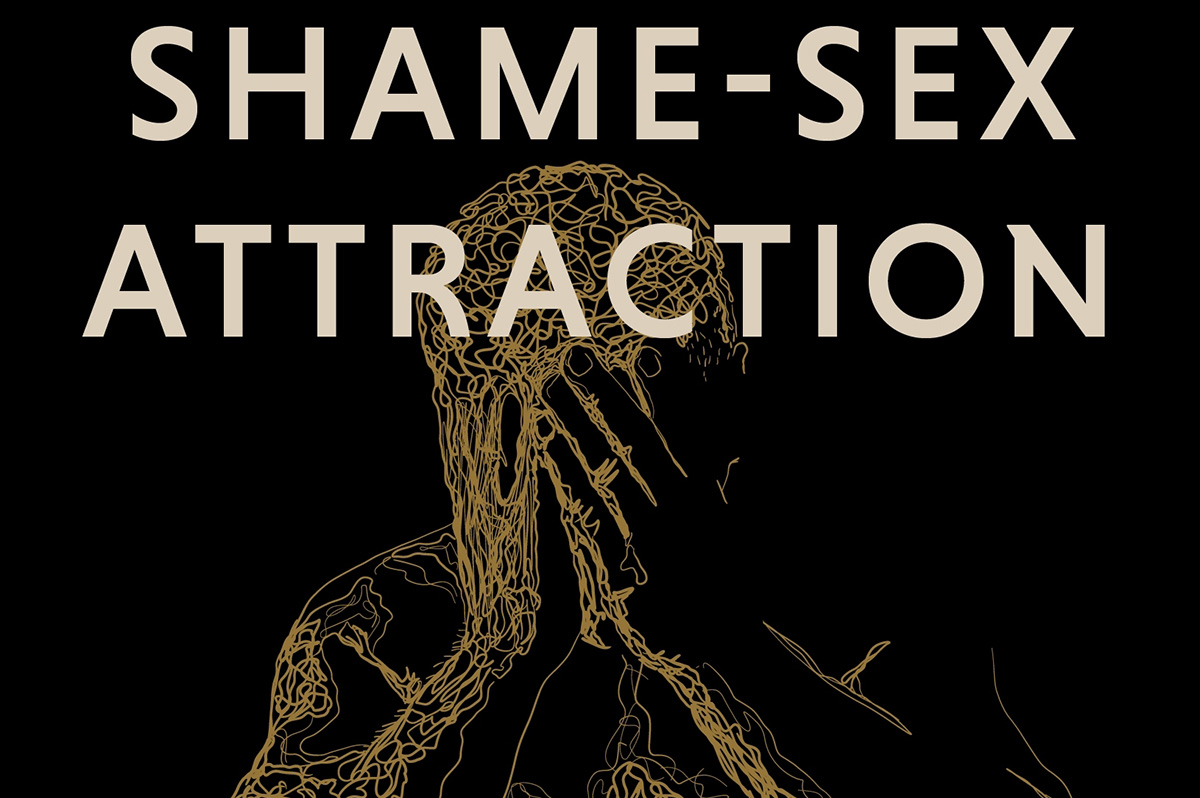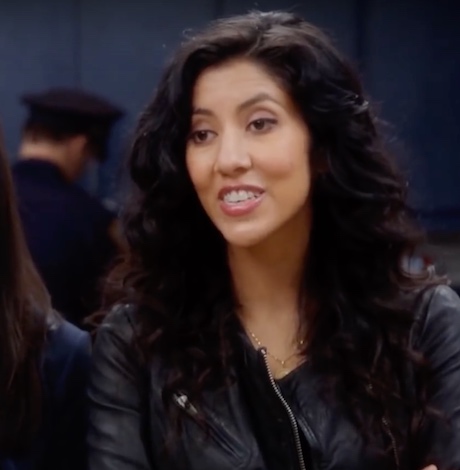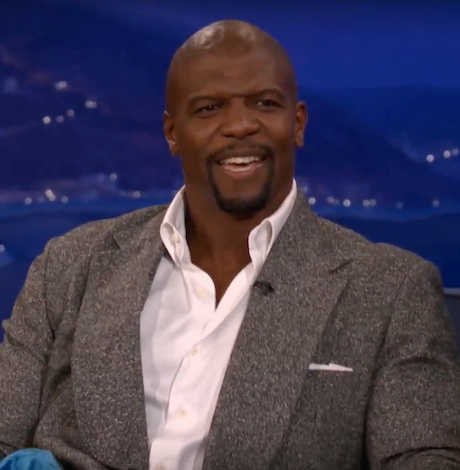Arts & Entertainment
Terry Crews apologizes for calling children of same-sex parents ‘severely malnourished’
The ‘Brooklyn Nine-Nine’ star calls the remark ‘poorly worded’

Terry Crews has apologized for saying that children of same-sex parents will be “severely malnourished,” calling his remark “poorly worded.”
The comment was sparked after the “Brooklyn Nine-Nine” star began to criticize a New York Times’ op-ed titled “Why Does Obama Scold Black Boys?”
If a successful black man can’t advise the black male youth of the next generation, who will?
— terry crews (@terrycrews) February 24, 2019
THE STREET. That’s who.
Why Does Obama Scold Black Boys? https://t.co/p7RIFzS2sO
You can speak with us— just not FOR US. There is a big difference.
— terry crews (@terrycrews) February 24, 2019
Later, the conversation shifted to single parents and same-sex parents.
“I’ve reiterated many times that
One user challenged him on his same-sex parenting comment saying “Love is not gendered. A child will not starve with only one gender loving them.”
“But they will be severely malnourished,” Crews replied.
Wonder if any of the #BrooklynNineNine cast are going to address the disgusting things terry crews is tweeting pic.twitter.com/8znPusepOQ
— auguste (@astdelagrange) March 2, 2019
After the comment was met with criticism, Crews deleted the tweet and apologized.
“I apologize to anyone who was hurt by my “severely malnourished” tweet. It was in response to someone who said kids wouldn’t ‘starve,'” Crews wrote. “It was poorly worded so I deleted it.”
I apologize to anyone who was hurt by my “severely malnourished” tweet. It was in response to someone who said kids wouldn’t “starve”.
— terry crews (@terrycrews) March 1, 2019
It was poorly worded so I deleted it.
However, Crews still stood firm in his belief that children need to be raised by a mother and a father.
I understand you trying to cancel the concept of a father but without one YOU WOULDN’T EXIST, SIR. https://t.co/mZfQIiSTiB
— terry crews (@terrycrews) March 2, 2019
You apparently thought I was your puppet. But I have a mind of my own, and can see and think very clearly.
— terry crews (@terrycrews) March 2, 2019
The “phobic” tag is the most feared public tag next to racist.
I don’t fear it because I am neither.
Bullies come in all shapes and sizes. https://t.co/wuBRM2SdEo
I have another very controversial statement to make, and I will since I’m “canceled” anyway.
— terry crews (@terrycrews) March 2, 2019
As a human being there are things you can only get from your mother.
I explained it just like I meant to. You need both. https://t.co/2aXCUEiHDW
— terry crews (@terrycrews) March 2, 2019
Books
Chronicling disastrous effects of ‘conversion therapy’
New book uncovers horror, unexpected humor of discredited practice

‘Shame-Sex Attraction: Survivors’ Stories of Conversion Therapy’
By Lucas F. W. Wilson
c.2025, Jessica Kingsley Publishers
$21.95/190 pages
You’re a few months in, and it hasn’t gotten any easier.
You made your New Year’s resolutions with forethought, purpose, and determination but after all this time, you still struggle, ugh. You’ve backslid. You’ve cheated because change is hard. It’s sometimes impossible. And in the new book, “Shame-Sex Attraction” by Lucas F. W. Wilson, it can be exceptionally traumatic.

Progress does not come without problems.
While it’s true that the LGBTQ community has been adversely affected by the current administration, there are still things to be happy about when it comes to civil rights and acceptance. Still, says Wilson, one “particularly slow-moving aspect… has been the fight against what is widely known as conversion therapy.”
Such practices, he says, “have numerous damaging, death-dealing, and no doubt disastrous consequences.” The stories he’s collected in this volume reflect that, but they also mirror confidence and strength in the face of detrimental treatment.
Writer Gregory Elsasser-Chavez was told to breathe in something repellent every time he thought about other men. He says, in the end, he decided not to “pray away the gay.” Instead, he quips, he’d “sniff it away.”
D. Apple became her “own conversation therapist” by exhausting herself with service to others as therapy. Peter Nunn’s father took him on a surprise trip, but the surprise was a conversion facility; Nunn’s father said if it didn’t work, he’d “get rid of” his 15-year-old son. Chaim Levin was forced to humiliate himself as part of his therapy.
Lexie Bean struggled to make a therapist understand that they didn’t want to be a man because they were “both.” Jordan Sullivan writes of the years it takes “to re-integrate and become whole” after conversion therapy. Chris Csabs writes that he “tried everything to find the root of my problem” but “nothing so far had worked.”
Says Syre Klenke of a group conversion session, “My heart shattered over and over as people tried to console and encourage each other…. I wonder if each of them is okay and still with us today.”
Here’s a bit of advice for reading “Shame-Sex Attraction”: dip into the first chapter, maybe the second, then go back and read the foreword and introduction, and resume.
The reason: author Lucas F. W. Wilson’s intro is deep and steep, full of footnotes and statistics, and if you’re not prepared or you didn’t come for the education, it might scare you away. No, the subtitle of this book is likely why you’d pick the book up so because that’s what you really wanted, indulge before backtracking.
You won’t be sorry; the first stories are bracing and they’ll steel you for the rest, for the emotion and the tears, the horror and the unexpected humor.
Be aware that there are triggers all over this book, especially if you’ve been subjected to anything like conversion therapy yourself. Remember, though, that the survivors are just that: survivors, and their strength is what makes this book worthwhile. Even so, though “Shame-Sex Attraction” is an essential read, that doesn’t make it any easier.
The Blade may receive commissions from qualifying purchases made via this post.
Arts & Entertainment
How queer Baltimore artists are building strong community spaces
Fruit Camp is home to tattoo artists, musicians, herbalist, and more

Fruit Camp, a tattoo and art studio in the Remington neighborhood of Baltimore, opened with a bang in February of 2020. “We had a big opening party. It was really fun. Everybody came,” says Geo Mccandlish, one of the co-founders. “It was the last rager I went to,” they said.
The pandemic shut down their shop—alongside the world—for months, but the shop survived. “We just put our stimulus checks into keeping the rent paid,” says Emi Lynn Holler, the other co-founder.
They had built the space without loans, on a low-budget, do-it-yourself ethos with hands-on help from their community. “The deeply punk shoestring budget background worked really to our advantage,” says Mccandlish.
While it wasn’t ideal, it was fitting. Mccandlish and Holler’s artistic partnership has almost always lived at the crossroads of community, DIY, and extraordinary circumstances. A decade ago they met as residents of the Bell Foundry, an arts co-op and co-living space, where sharing knowledge, making community, and living cheaply were key to getting by.
It was there that Holler gifted Mccandlish their first tattooing machine and taught them how to use it. And it was where the two of them—who also do printmaking, fiber arts, and other creative activities—started imagining co-founding a space of their own. That dream felt more urgent in 2016 when Baltimore condemned the Bell Foundry and evicted the residents, including Mccandlish, during a nationwide crackdown on artist co-ops after the Ghost Ship fire in Oakland.
Holler had by then moved to Massachusetts to pursue formal tattoo education and certifications.
“Living inside that level of precarity,” Mccandlish explains, “made us want to figure out a hybrid,” between the unique, collaborative Bell Foundry and a licensed, commercial space. “We wanted to find a way to create more safety,” says Holler.
But they didn’t just want to create safety for the two of them. When looking at spaces, they opted to lease a bigger studio—a two-story, double-row house with room for tattooing on the first floor and small studios on the second. Mccandlish said the prospect of a larger project felt “tantalizing and precious” because they felt “if you have access to something, you try to make sure that every resource that is a part of it is also shared.”
Today, in addition to tattoos, Fruit Camp holds studios for musicians, fiber artists, an herbalist, a massage therapist, and a doula. “We’re able to incubate and hold nontraditional pathways to different kinds of creative practices,” says Mccandlish.
You can consider Fruit Camp a queer business by several definitions. For one, every member of the studio identifies as queer, in some way. It also looks queer. “It’s campy and it’s pink, and we have a lot of gay art hanging around,” explains Mccandlish.
Holler says sometimes they get asked about losing potential patrons by being openly queer, but that isn’t a worry. “I think it only strengthens us,” they say. “It brings people to us who also want to find each other in that world.” They pause, “I feel like it boils down to we keep us safe and we take care of ourselves.”
Mccandlish emphasizes that “queer is the political meaning” and the “orientation to” which they do their work as a community space and business. Their shop practices are explicitly queer and trans-friendly—in addition to being “anti-racist, anti-sexist, liberation-oriented, and accessible.” For example, the shop requires masking and has consent-forward and trauma-informed practices in place. They also use cost-sharing instead of a traditional profit model with those who work in their space. “The point is not to make as much money as everybody can, the point is to work enough with a low enough cost overhead that everyone can survive without overworking.”
That is a continued goal, not a static place, they explain. “Some of our goals, we haven’t reached yet, like turning into a true worker co-op.”
But they are already making big strides in the community. For example, some patrons tell them that they are the only tattoo studio they feel safe using, due to the universal masking policies. To their knowledge, they are the only shop in Baltimore that has the policy.
Fruit Camp also has a big community name. One day Mccandlish logged onto a community Facebook group and saw an anonymous post asking about queer-friendly tattooers or tattooers who would tattoo someone who has HIV. The post said, “I’ve been turned away from five different shops.”
Immediately Mccandlish went to the comments to write that Fruit Camp would be happy to tattoo them, but instead, they found the comment section full of that recommendation already. It warmed their heart. “That feels like a very minor way that [our work] is so important.”
(This story is part of the Digital Equity Local Voices Fellowship lab through News is Out. The lab initiative is made possible with support from Comcast NBCUniversal.)
Theater
Timely comedy ‘Fake It’ focuses on Native American themes
Arena Stage production features two out actors

‘Fake It Until You Make It’
Through May 4
Arena Stage, 1101 Sixth St., S.W.
Tickets start at $59
Arenastage.org
A farce requires teamwork. And Larissa FastHorse’s “Fake It Until You Make It” now at Arena Stage is no exception.
The timely comedy focuses on Native American nonprofits fractiously housed in a shared space. Friction rises when rivals River (Amy Brenneman), a white woman operating in the Indigenous world, goes up against the more authentic Wynona (Shyla Lefner) to win a lucrative Native-funded grant.
While Brenneman (best known for TV’s Judging Amy) is undeniably a big draw, it takes a group collaboration to hit marks, land jokes, and pull off the well-executed physical comedy including all those carefully timed door slams.
As members of the six-person “Fake It” cast, Brandon Delsid and Eric Stanton Betts, both out actors of partly indigenous ancestry, contribute to the mayhem. Respectively, Delsid and Betts play Krys and Mark, a pair of two-spirited Native Americans who meet farcically cute and enjoy one of the play’s more satisfying arcs.
For Krys, every attractive man is a potential next fling, but when Mark, handsome and relatively reserved, arrives on the scene, it’s something entirely different.
Both onstage and sometimes off, Betts plays the straight man to Delsid’s waggishness. But when it comes down to real life business, the friends are on the same page: not only are the L.A.-based, up-and-coming actors intensely serious about their film and stage careers, but they’re also particularly engaged in the themes of Indigenous People found in “Fake It.”
On a recent Wednesday following a matinee and an audience talkback, they were ready for a phone interview.
In establishing whose voice was whose, Delsid clarified with “I’m the one who sounds a little like a Valley girl.”
WASHINGTON BLADE: Brandon, you’ve been with the show since its early work-shopping days in 2022 and through its debut in Los Angeles and now Washington. Have things evolved?
BRANDON DELSID: Definitely. I’ve grown up in the last couple of years and so has my character; it’s hard to know where I end and Kry begins. There’s been a real melding.
Eric and I are both queer, and to get to play these roles that are so human, imperfect, sexy, and interesting is really joyful.
As queer artists you don’t always get the chance to do work like this. So many stories are queer trauma, which is incredibly important, but it’s liberating to feel joy and ride it off into the sunset, which, without revealing too much, is kind of what we get to do.
BLADE: There’s some race shifting in “Fake It” particularly with regard to “pretendian” (a pejorative term describing a person who has falsely claimed Indigenous status).
ERIC STANTON BETTS: The last few years I’ve been on a journey with my cultural identity and place in the world. I’m a mixed BIPOC artist, my dad is Black and Native American by way of the Cherokee tribe and my mom is white.
Since 2020, I’ve tried to figure out where I belong in this cultural history that I haven’t had a tie to throughout my life; it’s gratifying to find my way back to my indigeneity and be welcomed.
In the play, race shifting is introduced through farce. But it’s never in a disrespectful way; it’s never mocked or done in a way to take away from others. The playwright parallels race shifting with gender fluidity.
DELSID: But in life, there are people posing as Indigenous, actively taking grants, and the play goes there, we don’t hold back. Larissa, our playwright, has made it clear that she’s not trying to figure it out for us. With that in mind, we hope people leave the theater interested and curious to learn more.
BLADE: Mark arrives kind of the middle of some crazy drama, bringing along a jolt of romance.
BETTS: Yeah, when I show up, we’re all sort of shot out of a cannon, struggling to keep up with the initial lie.
DESLID: A very gay cannon.
BLADE: What’s up next for you two?
BETTS: Both Brandon and I are up for the same part in a TV pilot, so one of us may be getting some very good news. I also have a Tyler Perry film coming out soon [he plays a model, not an unfamiliar gig for Betts].
DELSID: Coming up, I have a recurring part on HBO’s “The Rehearsal,” and a supporting part in “June and John,” a John Besson film. But doing “Fake It Until You Make It” in L.A. and now D.C. has been a special time in our lives. It’s 23/7 togetherness. There’s that hour for sleep.
-

 District of Columbia5 days ago
District of Columbia5 days agoD.C. police seek help in identifying suspect in anti-gay threats case
-

 Virginia2 days ago
Virginia2 days agoYoungkin calls on gay Va. GOP LG candidate to exit race over alleged ‘porn’ scandal
-

 Opinions5 days ago
Opinions5 days agoOn Pope Francis, Opus Dei and ongoing religious intolerance
-

 Commentary4 days ago
Commentary4 days agoA conversation about queers and class









